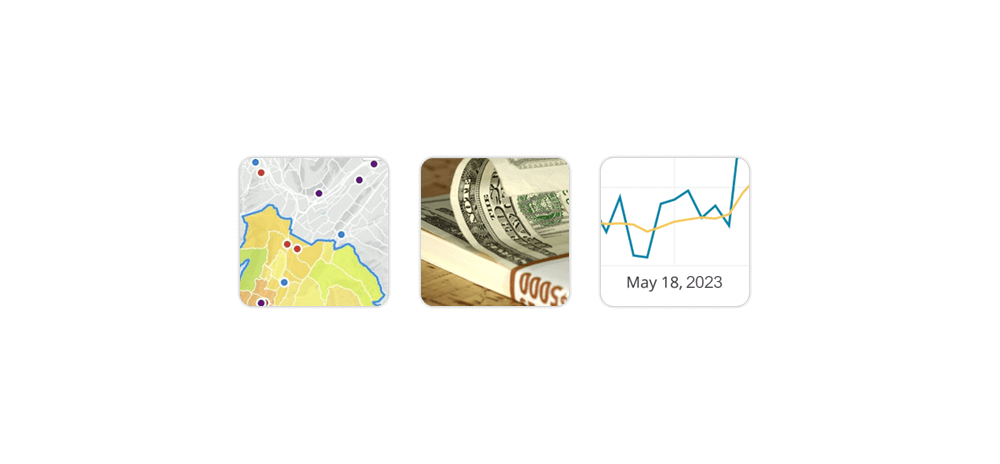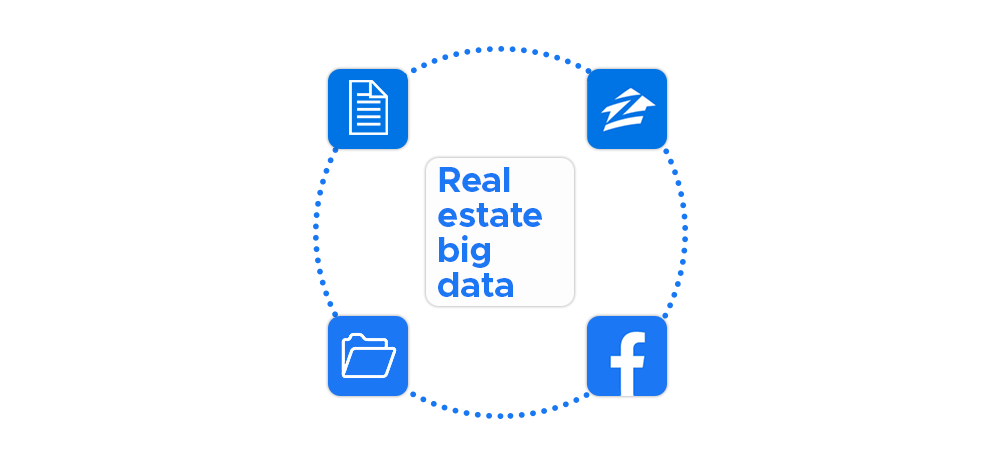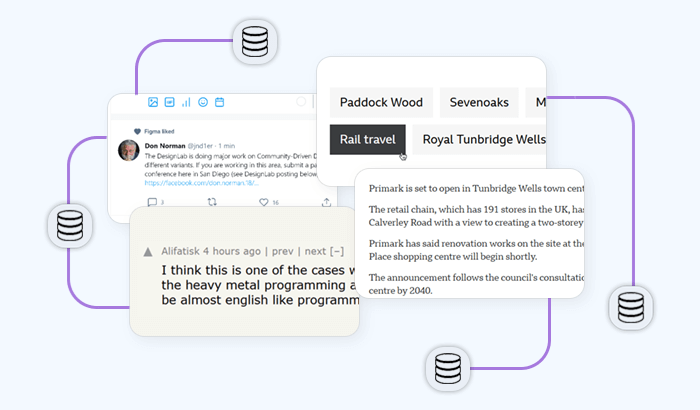

Real estate data analytics is transforming the real estate industry by providing insights, trends, and opportunities for buyers, sellers, and developers. Big data can help real estate professionals and consumers make informed and strategic decisions. In this page, you will learn: what is big data in real estate and how it is collected, benefits of using big data in real estate, use cases of big data in real estate, and trends of big data in real estate.
What is big data in real estate?
Big data in real estate is the collection, analysis, and application of large and complex data sets related to properties, markets, consumers, and trends. Big data in real estate can help professionals and consumers make informed and strategic decisions.
In this industry, big data can include structured data, such as numbers and dates, or unstructured data, such as text and images. Additionally, it can stem from geographic data, demographic data, social media data, sensor data, and more.
The benefits of using big data in real estate

Real estate data analysis can help industry professionals and consumers make informed and strategic decisions. Here are some of the benefits of using big data in real estate:
Saving time and money
Big data can help you assess the profitability and potential of an investment property in an almost instant manner – and also help you find and compare properties based on your preferences, needs, and budget. Furthermore, real estate big data help you optimize your marketing and sales strategies by targeting the right buyers and sellers.
Enhancing accuracy and reliability
Big data can help you determine the condition and value of a property more precisely by providing you with more accurate, relevant, and personalized information. Additionally, it can help you reduce the risks and uncertainties associated with real estate investing by providing you with insights into the demand, supply, and competition in your area.
Leveraging trends and opportunities
Big data can help you identify and evaluate opportunities by providing you with data on the potential and feasibility of different locations, projects, and designs. Big data can also help you leverage trends and patterns by providing you with data on the preferences, needs, and behaviors of consumers.
How big data is collected for use in real estate

🏸 Further reading: How to Leverage Web Scraping in Real Estate
Big data is collected for use in real estate from various sources and methods. Some of the sources and methods include:
- Public records: These are official documents that contain information about properties, such as ownership, sales history, taxes, zoning, permits, etc. Public records can be accessed online or offline from government agencies or third-party providers.
- Multiple listing services: Multiple listing services (MLS) are databases that contain information about properties that are listed for sale or rent by real estate agents or brokers. MLS can provide information such as location, price, size, features, photos, etc. MLS can be accessed online or offline from real estate associations or third-party providers.
- Online platforms: These are websites or apps that provide information about properties that are available for sale or rent by owners, agents, brokers, or platforms. Online platforms can provide information such as location, price, size, features, photos, reviews, ratings, etc. Online platforms can be accessed online from various sources such as Zillow, Trulia, Airbnb, etc.
- Social media: Social media are online platforms that allow users to create and share content and interact with others. Social media can provide information such as preferences, needs, behaviors, opinions, feedback, etc. Social media can be accessed online from various sources such as Facebook, Twitter, Instagram, etc.
- Sensors: Sensors are devices that detect and measure physical phenomena such as temperature, light, sound, motion, etc. Sensors can provide information such as energy consumption, security systems, environmental aspects, etc. Sensors can be accessed online or offline from various sources such as smart homes or buildings, internet of things (IoT), etc.
5 examples of big data reshaping real estate

Big data has many possible applications that can benefit various users and businesses in the real estate industry. Here are a few examples of how data is reshaping real estate:
Property valuation
Data analytics in real estate can help you price property optimally by providing you with data on the market conditions, buyer profiles, and comparable properties in your area. Big data can also help you perform appraisals and assessments more accurately by providing you with data on the age, condition, features, and renovations of a property.
Property search
Big data can help you find your ideal property by providing you with more accurate, relevant, and personalized information. Big data can help you filter properties based on your preferences, needs, and budget. Big data can also help you discover hidden gems, compare prices, and negotiate deals.
Property development
Big data can help you identify and evaluate opportunities by providing you with data on the potential and feasibility of different locations, projects, and designs. Big data can also help you optimize your development process by providing you with data on the market demand, supply gap, profitability, and risk of your investments.
Property marketing
Data analysis of real estate can help you market your property effectively by providing you with insights into the demand, supply, and competition in your area. Big data can also help you target the right buyers and sellers by providing you with data on their preferences, needs, and behaviors. Big data can also help you showcase your property's unique features by providing you with data on the community amenities, lifestyle factors, and environmental aspects.
Property management
Big data can help optimize the property performance by providing data on the energy consumption, security systems, environmental aspects, etc.
Trends of big data in real estate
Big data is constantly evolving and is reshaping the real estate industry. Here are some of the trends of big data in real estate:
Artificial intelligence
Artificial intelligence (AI) is the use of machines or software to perform tasks that normally require human intelligence or judgment. AI can enhance big data analysis by providing faster, smarter, and more accurate insights. AI can also automate various tasks such as property valuation, property search, property development, property marketing, etc.
Internet of things
Internet of things (IoT) is the network of physical objects or devices that are connected to the internet and can collect and exchange data. IoT can provide big data sources by generating real-time data on various aspects of a property such as energy consumption, temperature control, security systems, etc. IoT can also provide big data applications by enabling smart homes or buildings that can improve comfort, convenience, efficiency, safety, etc.
Blockchain
Blockchain is a system of storing and transferring information in a decentralized and secure way. Blockchain can improve big data quality by ensuring the validity, reliability, and transparency of the data sources. Blockchain can also improve big data efficiency by facilitating faster and cheaper transactions such as property buying or selling.
Conclusion
Big data is reshaping real estate – and the ways professionals and consumers operate and interact. Let’s reiterate the key points of this article: Big data can provide valuable insights and opportunities for various purposes and functions, such as property valuation, property search, property development, property marketing, and property management.
Big data can also help improve the accuracy, reliability, efficiency, and security of the data sources and methods. It can also help leverage trends and patterns by providing data on the preferences, needs, and behaviors of consumers. By harnessing its power, real estate professionals and consumers can make smarter decisions and gain a competitive edge in the market.
Frequently Asked Questions
Big data in real estate also comes with some challenges and limitations, such as:
- The quality, reliability, and validity of the data sources and methods.
- The privacy, security, and ethical issues of collecting and using personal or sensitive data.
- The complexity, cost, and skills required to process and interpret large and diverse data sets.












